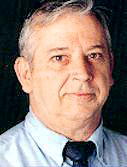I found a short passage at the end of For Whom the Bell Tolls that sums up beautifully what I believe was Ernest Hemingway’s philosophy.
The story is about a mission to blow up a bridge during the Spanish Civil War, and Robert Jordan, an American who is badly wounded, has elected to stay behind and try to delay the soldiers while the other guerrillas escape. It is morning and in the mountains. He knows he will be killed.
He is thinking about his own death:
"You have had much luck. There are many worse things than this. Everyone has to do this, one day or another. You are not afraid of it once you know you have to do it, are you? No, he said, truly. … He looked down the hill slope again and he thought, I hate to leave it, is all. I hate to leave it very much and I hope I have done some good in it. I have tried with what talent I had."
Perhaps Hemingway was thinking similar thoughts when he was alone in Idaho with the shotgun. He knew his mind was going and he knew he wouldn’t be able to write anymore, and writing was all that ever mattered to him. So, while he was still clear, he had to kill himself. In the novel, Jordan worries that he may pass out from the pain before the enemy soldiers get there. He, too, thinks of killing himself.
"I think it would be all right to do it now? Don’t you?" Jordan asks himself. "No it isn’t. Because there is something you can do yet. As long as you know what it is you have to do it. As long as you remember what it is you have to wait for that."
For Hemingway there was nothing left to do, nothing to remember, but as much as he loved life, perhaps those poignant words he had written so long ago — "I hate to leave it, is all. I hate to leave it very much" — came back to him. He had been receiving electroshock treatment for depression, which interfered with his memory. For a writer, memory is essential.
If you are young enough not to have read much of Hemingway, then you have some pleasurable hours to look forward to. I’ve read all of his works published while he was still alive and one that was published posthumously. Sometimes I reread them, but much of what he wrote was bleak.
A lot of people these days don’t like Hemingway, and that’s understandable in these decadent and effeminate times we live in. He liked to hunt, fish, box and drink. He was an ardent fan of bullfighting. He was wounded in World War I driving an ambulance for the American Red Cross, and he was in two plane crashes. He was under fire in World War II and in the Spanish Civil War.
The odd thing is that though he said he hated people writing about his private life and he never hired a publicity agent, he is surely the most well-known American writer in the world. The press made him a celebrity.
 He was a stoic and, so far as I can tell, not religious at all. He knew as well as the old samurai that death was the final destination. Until you arrive there, he believed in relishing life and in doing useful work. Consequently, of those things he was interested in, he took particular pains to learn about them. He labored really hard at his writing, always with the goal of telling his story truthfully and as accurately as possible. His prose, at his best, is astounding.
He was a stoic and, so far as I can tell, not religious at all. He knew as well as the old samurai that death was the final destination. Until you arrive there, he believed in relishing life and in doing useful work. Consequently, of those things he was interested in, he took particular pains to learn about them. He labored really hard at his writing, always with the goal of telling his story truthfully and as accurately as possible. His prose, at his best, is astounding.
I think I was either at Fort Bragg or getting ready to report when he checked out. I was greatly saddened, though I had never met the man. I’m not a fisherman or a big-game hunter, and if I ever go to a bullfight, I’m sure I will find myself rooting for the bull. But he was, as I think he was for most men of my generation, a part of my growing up. When you’re 13 and ignorant and you first read Hemingway, you say, "Ah, so this is how it is."
Charley Reese [send him mail] has been a journalist for 49 years.




